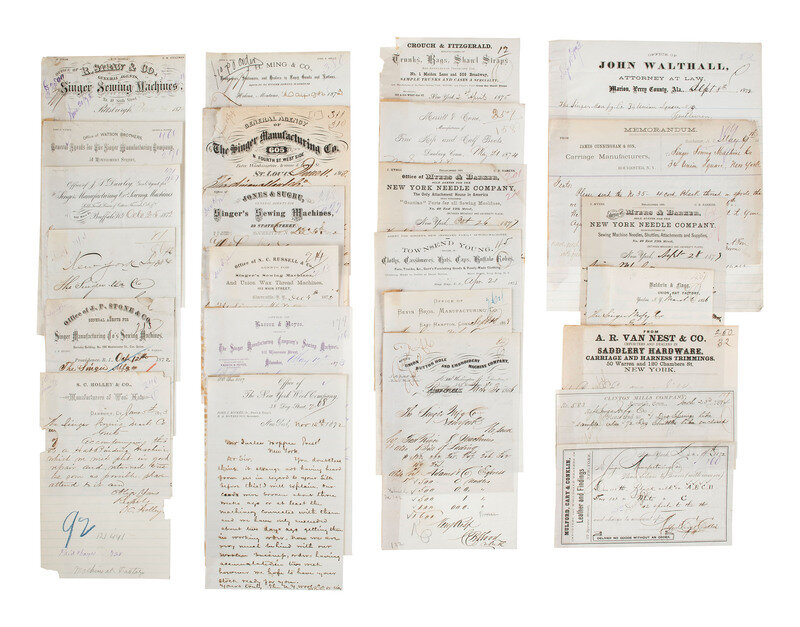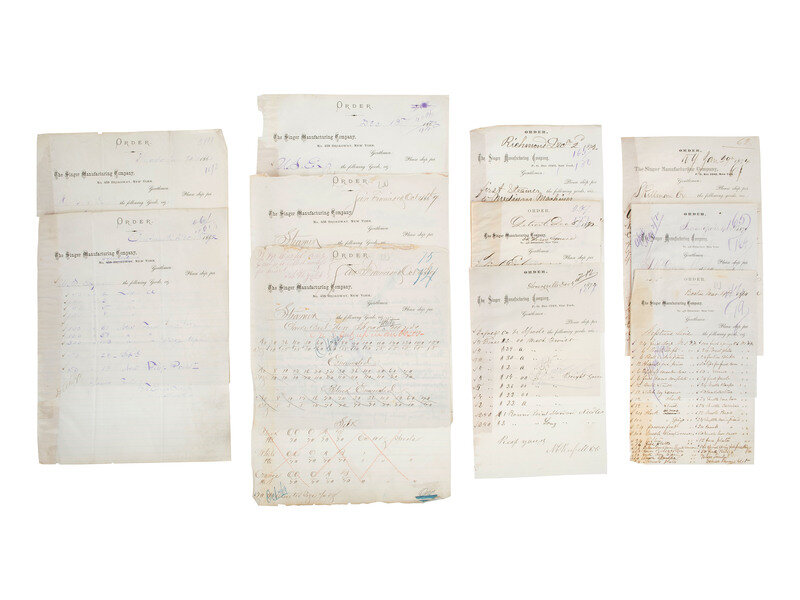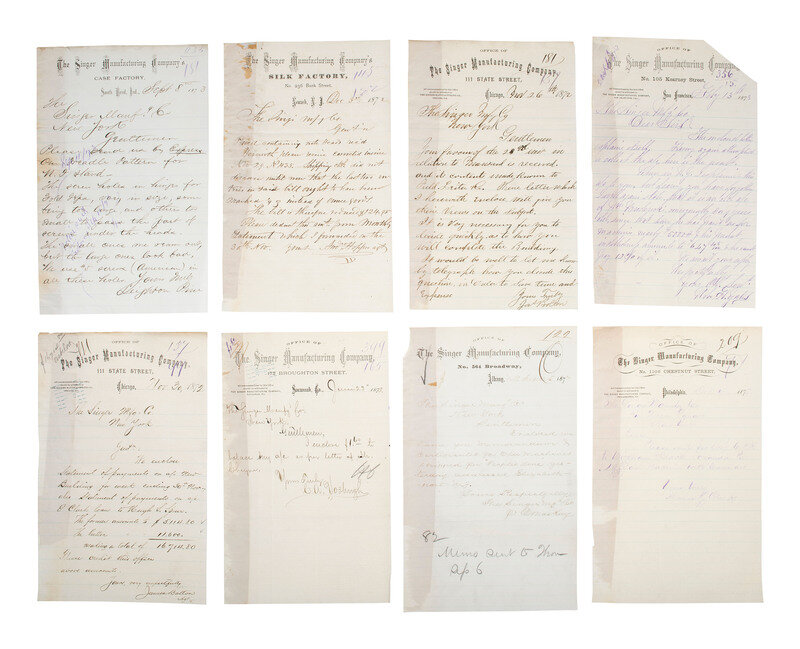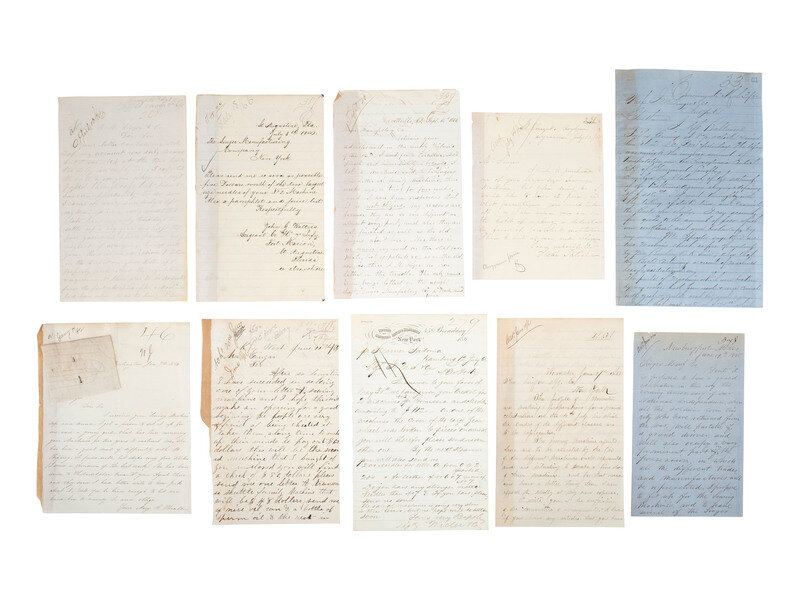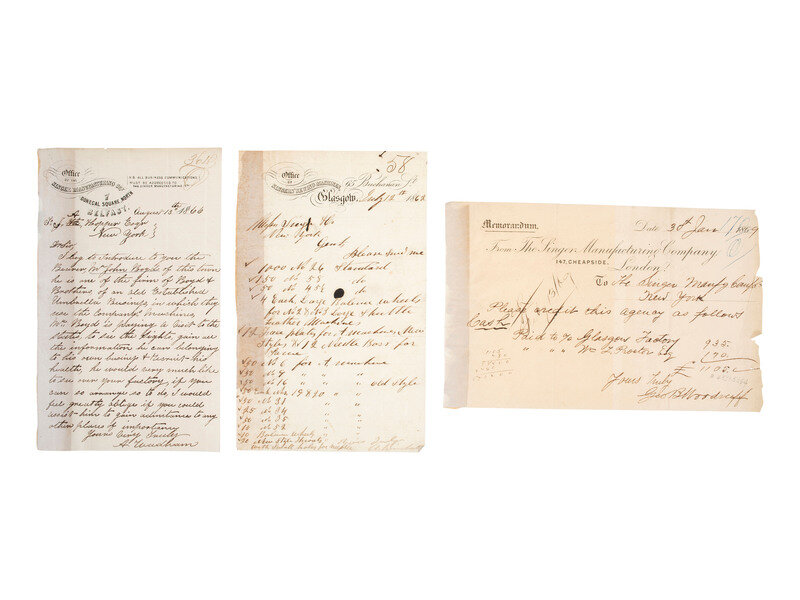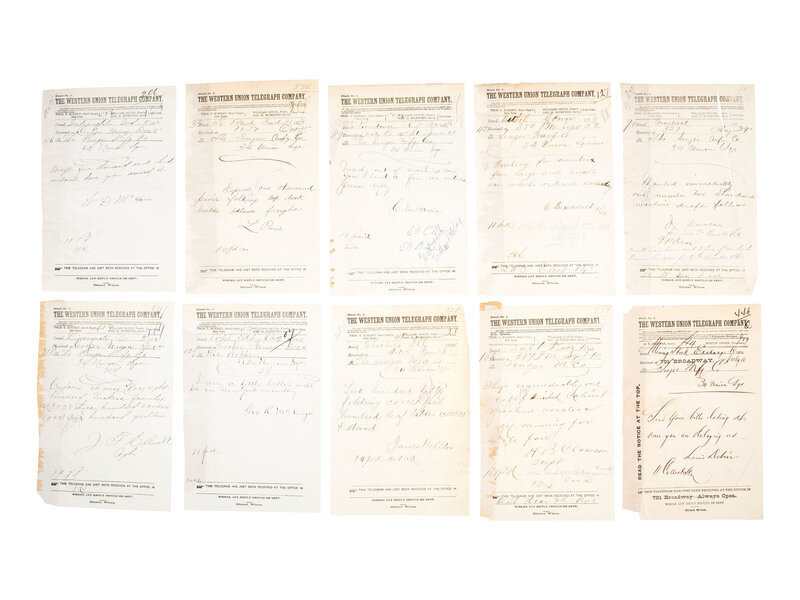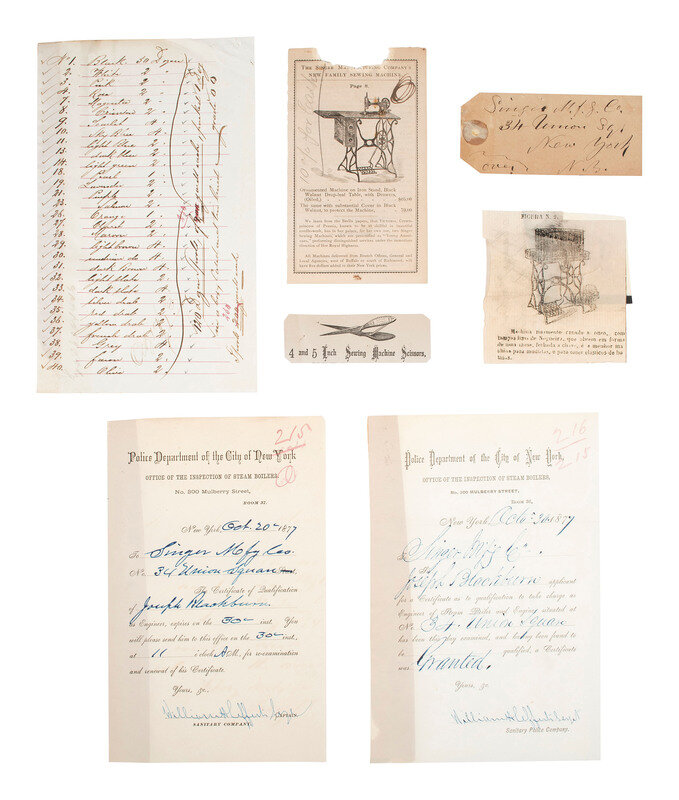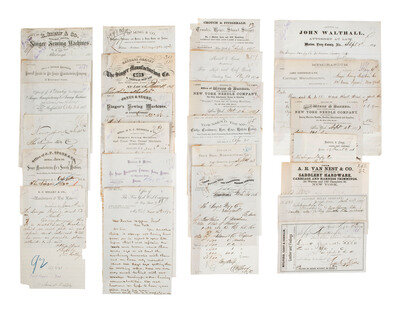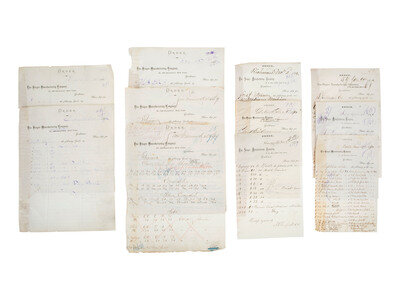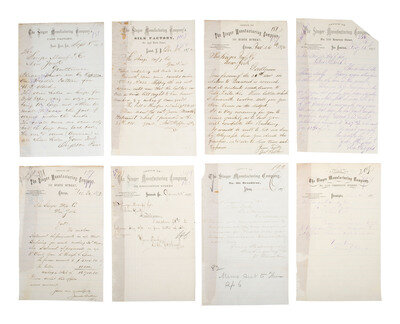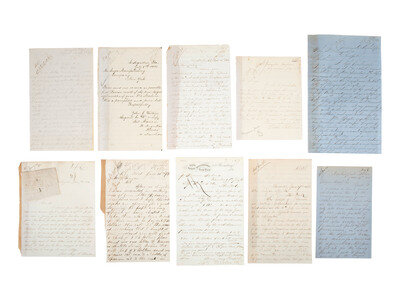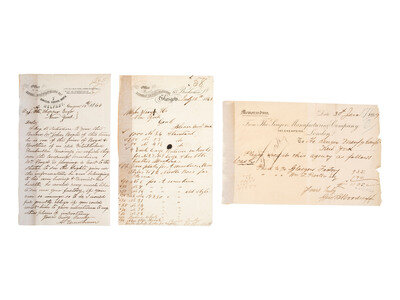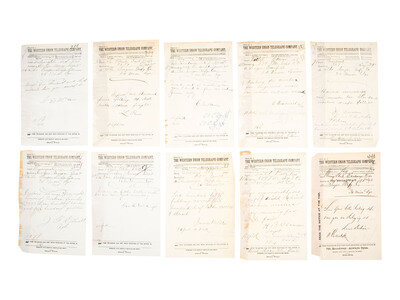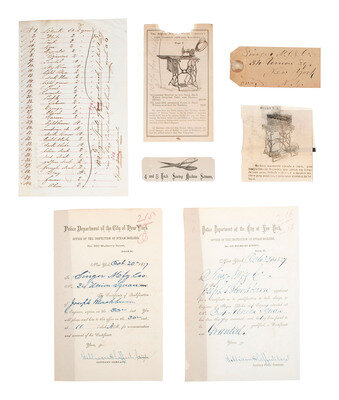[BUSINESS & INDUSTRY]. Extensive manuscript archive involving the Singer Manufacturing Company and associated employees, agents, manufacturers, and clients.
Sale 1344 - American Historical Ephemera and Photography
May 31, 2024
10:00AM ET
Live / Cincinnati
Own a similar item?
Estimate
$1,000 -
2,000
Price Realized
$1,524
Sold prices are inclusive of Buyer’s Premium
Lot Description
[BUSINESS & INDUSTRY]. Extensive manuscript archive involving the Singer Manufacturing Company and associated employees, agents, manufacturers, and clients.
Archive of approximately 1000+ documents spanning ca mid-1860s-1880s (bulk early 1870s). Documents primarily constitute product orders placed by Singer agents and from manufacturers, as well as correspondence from branch offices. A smaller group of letters are inquiries or orders placed directly from individuals. Orders often recorded on original Singer Manufacturing Company lettersheets and forms. Documents include orders for new machines as well as for replacement parts and associated items. Manufacturers identified include clothiers, hatmakers, carriage manufacturers, shoemakers, trunk and travel bag manufacturers, and needle manufacturers. Archive demonstrates the extraordinary expanse of the Singer Manufacturing Company's business empire, with correspondence originating from across the United States including New York, California, Michigan, Wisconsin, Texas, Pennsylvania, Ohio, Tennessee, Virginia, New Jersey, Missouri, and Montana, and as far away as London and Glasgow.
This large collection sheds light on a wide array of company matters, including the hire of agents, customer assessments of newer models and the quality of materials being used, challenges associated with selling the machines, as well as other business-related matters such as advertising, billing, payment, shipping, and supply. Requests and orders directed to the Singer company range from the purchase of new models to parts such as needles, cotton fabric, wooden bobbins, belts, feed guides, shuttles, screw drivers, price circulars, and instruction books. The Civil War-date letters and documents (approx. 100) demonstrate that business did continue despite the ongoing conflict, though in some cases it proved more difficult. One employee wrote from Cincinnati in March of 1862 that monies owed from a certain entity would likely not be recoverable as "the parties owing us are dead or in the Southern Confederacy." The same letter describes the inability of getting from Louisville to Nashville due to the presence of Confederate troops, but states that his association with officer's in the Quartermaster's department might enable him to secure a pass "should Nashville be in the possession of our Troops." Two post-war letters from June of 1865 ask for company assistance with plans for Independence Day celebrations that are to include returned soldiers and a procession "in which all the different trades and manufacturers will be represented....." Other letters indicate discounts offered such as a "clergyman's price" and the company's "habit of making a deduction in favor of benevolent institutions" as noted by "Sister Tatiana" of St. Vincent's Asylum in Syracuse (13 July 1865). One letter from a woman in New Jersey describes the way in which a new machine "skips every few stitches" and includes "a specimen of the best work" pinned to the letter.
Though the Singer Corporation (renamed the Singer Manufacturing Company in 1865) had become the largest selling brand of sewing machines internationally by 1855, the U.S. Civil War impacted production. Following the end of the war and the introduction in 1865 of the "New Family" Sewing Machine, the Singer company experienced exponential growth in the US. The correspondence offered here encompasses this period of growth, demonstrating the strong demand for the machines and the ways in which the Singer Manufacturing Company employed a wide network of agents to offer its products ultimately becoming one of the most successful, and recognizable, manufacturing brands.
Documents typically with period notations, check marks, and/or internal identification numbers added by Singer employees indicating a reply had been sent, requests had been completed, etc. Nearly all documents with mounting remains on verso. Condition of documents generally good.
Condition Report
Auction Specialist
